Faculty are engaged in Teacher Learning Groups as an on-going professional development initiative focused on modeling a growth mindset for our students. Small groups of three or four faculty members are observing each other's classes and meeting biweekly to coach each other through those observations. Today, I had the opportunity to sit in on Corby Leith’s A block studio art class.
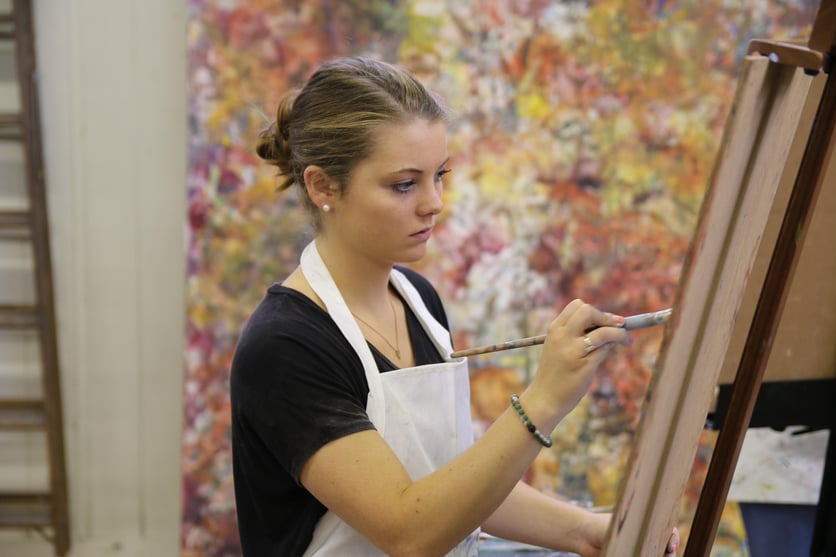
I arrived a few minutes early and sat in the corner of a bustling Slocomb Hall where studio art, photography, and ceramics students hurried to finish their projects before the end of the period. Silently, I watched the previous block’s students clean brushes, store newly created work safely away, and discuss life at Proctor. The energy in the building was palpable, invigorating, and restorative. Corby’s class filtered through the door and each student set up his or her own work station around the open room.
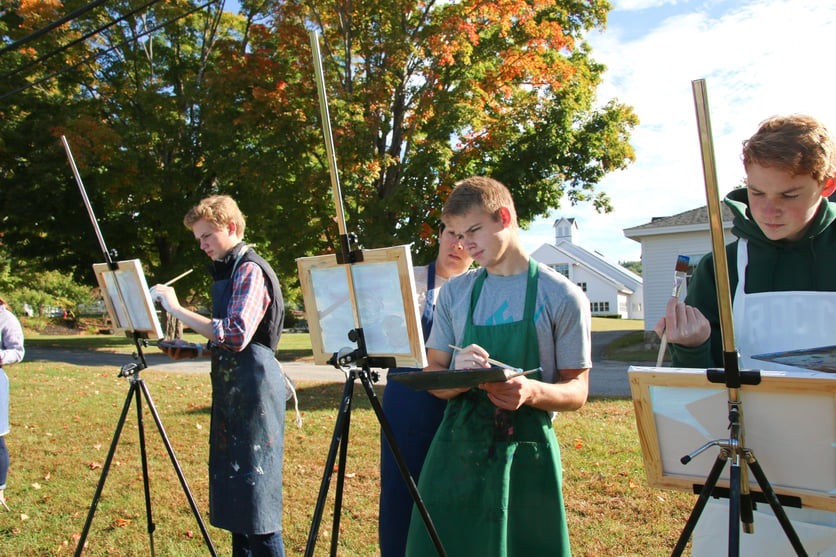
The chaotic energy seamlessly transitioned to focus as students immersed themselves in their work. Corby circulated to each student, provided direct feedback on each piece, but mostly asked questions of his students. “Why did you use that color?” “What if you did this?” “Have you stepped back to look at your piece from a new angle?”
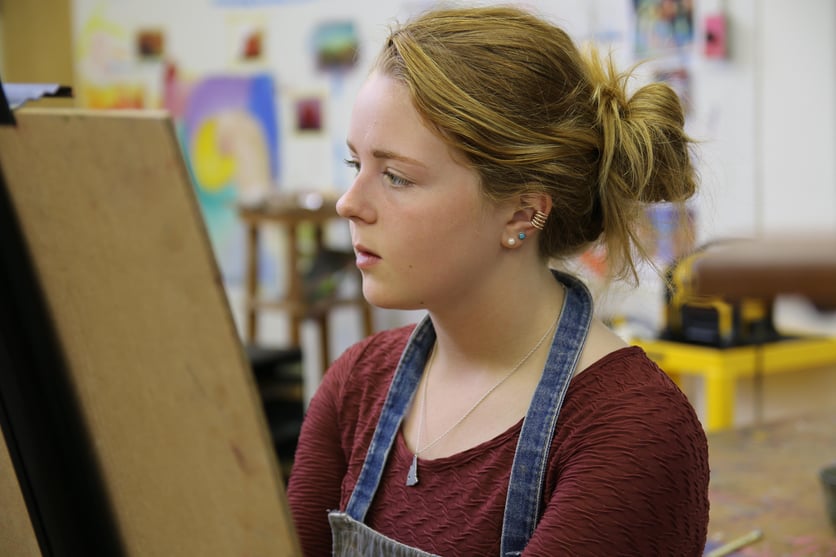
As I observed Corby and jotted down notes, I thought to myself, creation of art in this manner is sadly foreign to me. My world is filled of deadlines, concrete tasks, structure, and organization. Finish this assignment, so I can move on and get that done, so I can then do that long overdue task. Satisfaction comes from completing the task, but I struggle to find as much joy in the process as Corby's students seemed to today.
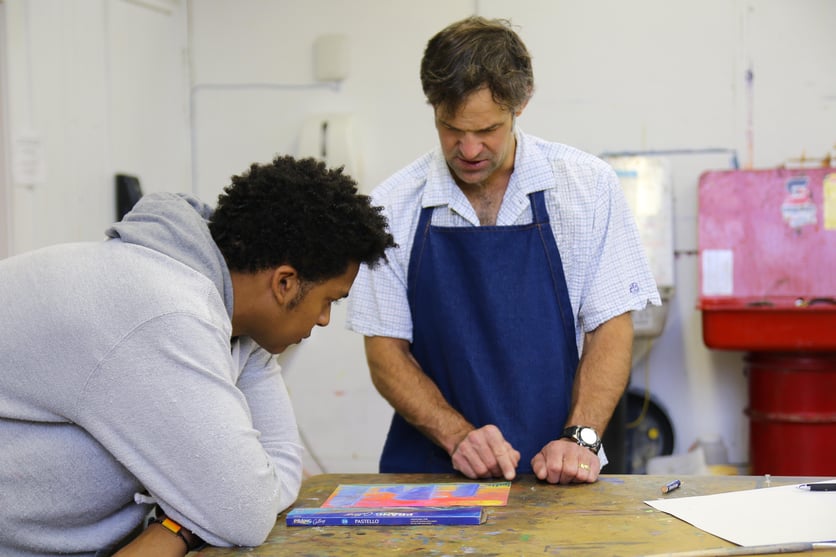
Art teachers at Proctor have created an environment where there is no right or wrong, just a constant opportunity to improve. This environment is liberating for the students, their minds are unfettered and creativity flows. Clearly foundational skills are being taught, but each student embraces those techniques through their own work, in their own timing, in their own way. They are assessed on their willingness to engage fully with the process, and that creates a culture where growth is the goal, not a final product. How can we learn from this model and apply it across disciplines?
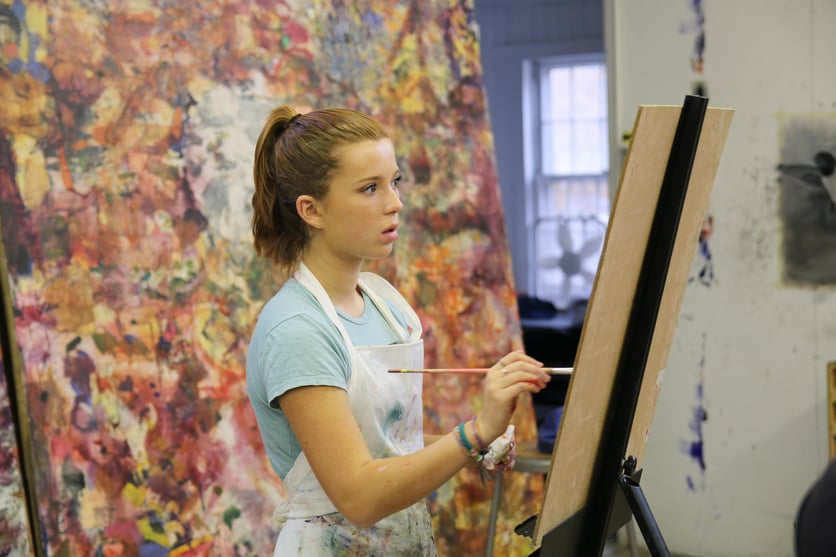
When 95% of students are enrolled in an arts course (as they are this year), we collectively forms habits that strengthen our ability to slow down, reflect, and step back from our work to see how we might be better even when outside pressures tell us to just get the job done.








